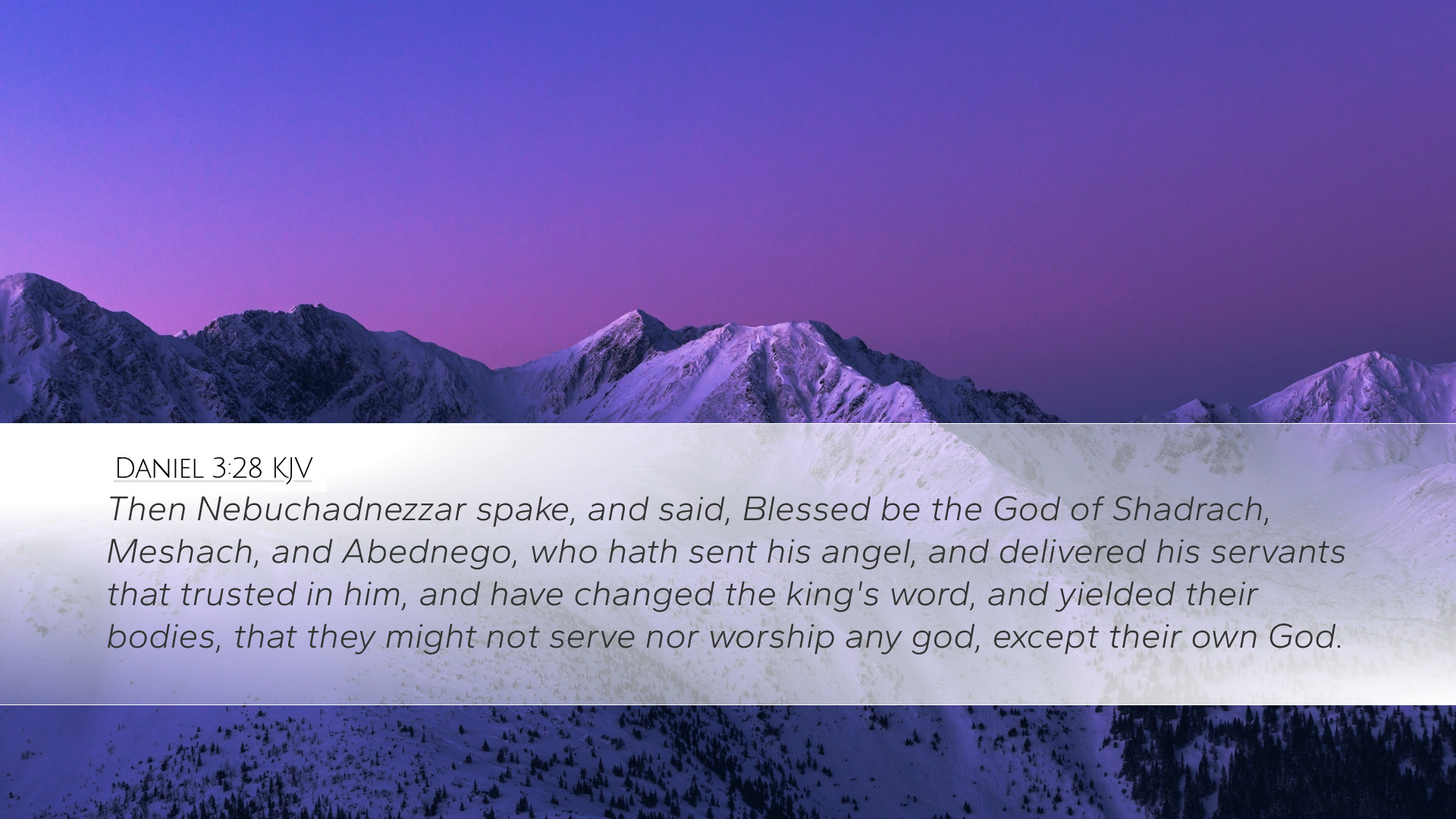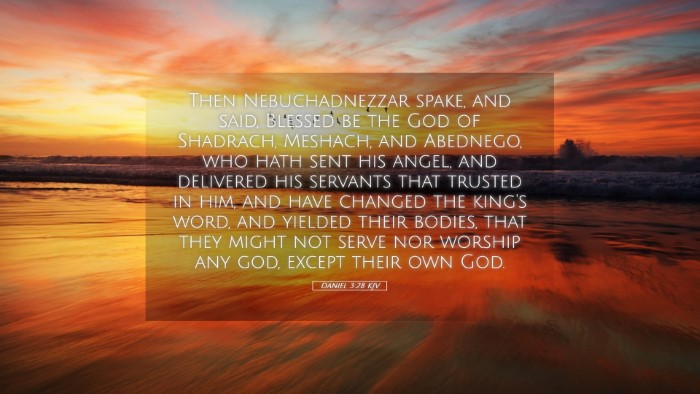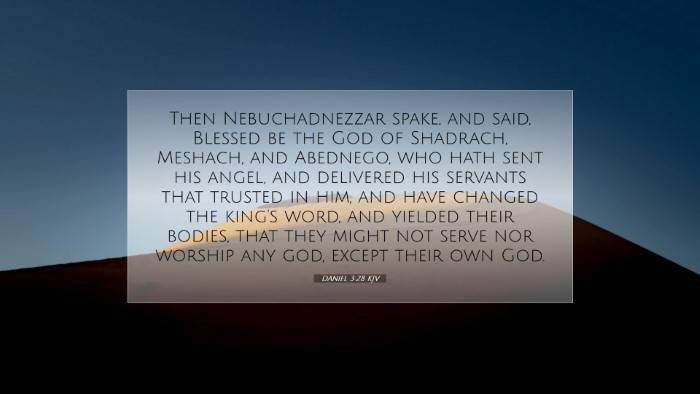Commentary on Daniel 3:28
Verse Context: This verse is part of the remarkable narrative of Shadrach, Meshach, and Abednego, who refused to bow to King Nebuchadnezzar's golden image. Their faithfulness to God, despite the threat of death by fire, exemplifies steadfastness and the power of divine deliverance.
Historical and Theological Significance
Divine Intervention: Daniel 3:28 captures a defining moment of divine intervention. After witnessing the miraculous preservation of the three Hebrew youths, King Nebuchadnezzar acknowledges the supremacy of God. This incident underscores God's sovereignty and ability to save His people in their trials.
Commentary Insights
1. Matthew Henry's Perspective
Matthew Henry emphasizes the significant change in Nebuchadnezzar’s attitude. The king, who once exuded pride and authority, is now compelled to honor the true God. According to Henry, this transformation illustrates a critical principle of God’s interventions: “When the faithful are in peril, God can, and often does, deliver them in a way that even the mighty acknowledge His power.”
2. Albert Barnes' Reflection
Albert Barnes further elaborates on the implications of the king's decree which follows the rescue of the three men from the flames. He notes that Nebuchadnezzar’s proclamation serves as a testimony to the God of Israel. Barnes writes, “This demonstrated that the true God is one who not only hears prayers but actively redeems His faithful from death.” Barnes stresses that the acknowledgment of God by a pagan king points to God’s ultimate plans for His covenant people.
3. Adam Clarke's Analysis
Adam Clarke offers a deeper look at the moral and cultural implications of the event. He highlights that this narrative is not merely centered on miraculous escape, but on the integrity and faith of Shadrach, Meshach, and Abednego.
Clarke states: “Their refusal to worship an idol was not an act of rebellion, but a testament of their allegiance to the living God, serving as an enduring example for believers who encounter cultural pressures.”
Theological Themes
- Faithfulness Under Persecution: The unwavering faith of Shadrach, Meshach, and Abednego serves as an encouragement to believers facing persecution, affirming that faithfulness to God supersedes worldly authority.
- God’s Sovereignty and Power: The deliverance experienced bears testament to God’s might and willingness to save those who trust in Him, reminding all readers that no difficulty is insurmountable with God.
- Witness to the Nations: Nebuchadnezzar’s proclamation reveals that God’s acts of deliverance not only serve His people but also serve as a witness to surrounding nations, encouraging them to recognize God’s sovereignty.
Practical Applications
For Pastors: This verse can be a powerful sermon theme on God’s faithfulness and the call to remain steadfast amidst trials. Pastors should focus on encouraging their congregations to stand firm in faith, using this narrative as a practical application of God's deliverance.
For Students and Theologians: Exploring the context of this narrative will enrich theological discussions around faith, courage, and divine sovereignty. Engaging with the commentaries can provide deeper understanding of the implications of God's interventions and the role of believers in a non-believing society.
Conclusion
Daniel 3:28 is a profound statement on faithfulness and deliverance. The insights from Matthew Henry, Albert Barnes, and Adam Clarke not only shed light on the immediate narrative but also on the overarching theological themes that resonate throughout Scripture. This moment serves as a reminder of God's unwavering support for those who remain faithful to Him amidst trials, encouraging believers across generations to trust in His mighty power.


